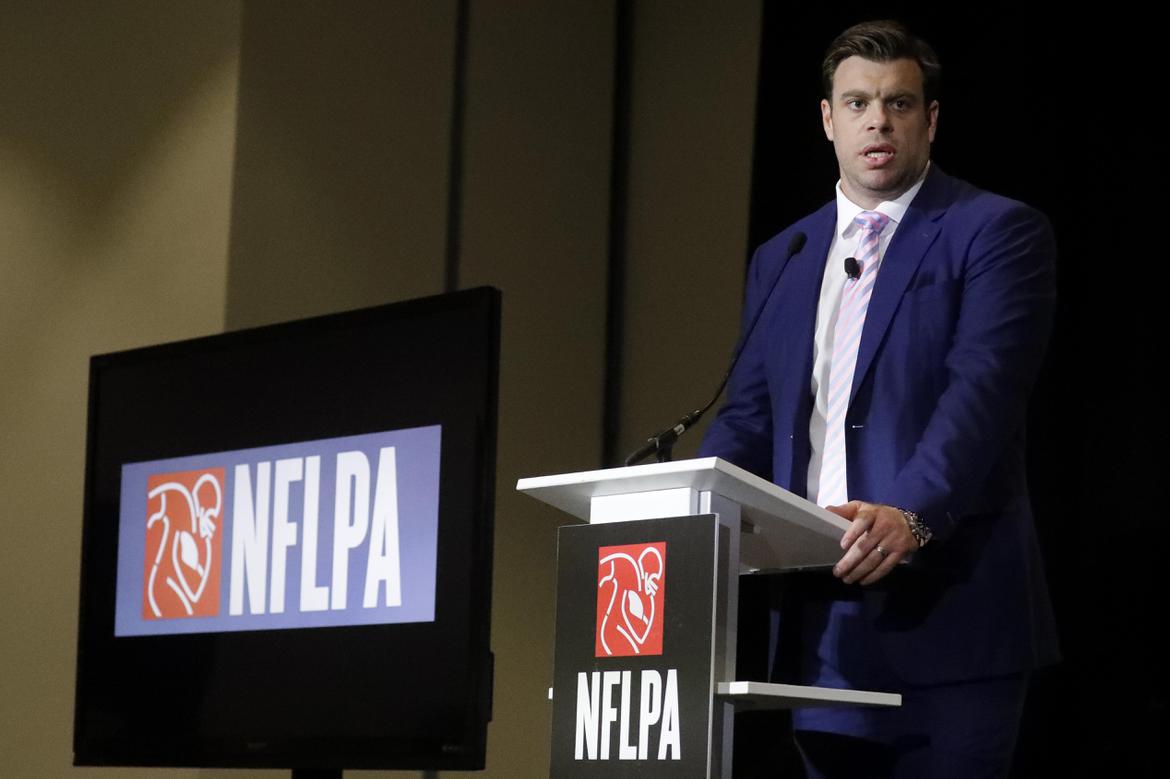Sportswriters sometimes make bold predictions, and sometimes those predictions go exceptionally wrong. One of the biggest cases in point comes from when Bill Belichick left the Jets for the Patriots in 2000, leading to Ian O’Connor (now of ESPN) writing a syndicated newspaper column headlined “Patriots Will Regret Hiring Belichick.” O’Connor was far from alone there, of course; a whole lot of sportswriters figured Belichick would be a disaster in New England, given his previous relatively-unimpressive head coaching record and the way he left the Jets after just one day. Still, O’Connor’s take stands out for how declarative it was, and it’s brought a lot of attention to him. He’s been a good sport about it, though, and his discussion of that column 17 years later with Hayden Bird of The Boston Globe for a piece published Thursday helps to illuminate his thinking and to show what goes into some of these takes gone horribly wrong. Here are a few highlights from their discussion:
As a columnist, there are bound to be moments like this, where in retrospect you might want to have one back. Have there been other notable examples like this one that you can think of?
Ian O’Connor: Sure. I thought it was a bad idea when the Yankees replaced Buck Showalter after the ’95 season. Brian Cashman agreed with me at the time, but he was an assistant GM who was overruled. Joe Torre was a thrice-fired manager who had never won a playoff series, and Showalter had done a very good job rebuilding a wreck of a franchise. So given that I thought Torre and Belichick were mistakes waiting to happen, the Yankees and Patriots would be down eight combined championships today had they shared my viewpoint. But who’s counting?
Do you remember what your thoughts were from that period? Is there anything specific that led you to your mindset in the piece?
IC: The Jets fiasco really inspired it. Given his four losing seasons out of five in Cleveland, and the fact he was fired on relationships there as much as he was on results, and the fact he’d just executed the most bizarre escape from New York of all time, I didn’t think he had the human relations skills to lead an organization. I’ve never been more wrong. I don’t recall mine being a wildly unpopular opinion at the time in Boston, New York, or even in the league offices, where some were advising Robert Kraft not to hire him. People in the Giants organization who adored Bill as an assistant also thought he would fail in New England. But I’ve pieced together thousands of columns over 30 years, and in terms of expressed opinion/prediction versus ultimate outcome, that’s probably the worst one I’ve ever written. It was my version of Pete Carroll throwing the ball at the goal line.
[link_box id=”81189″ site_id=”94″ layout=”link-box-third” alignment=”alignright”]Those comments help illustrate a few key issues that can show up in sportswriting. One is that these kinds of takes often don’t reflect just the columnist’s opinion, but the opinions of informed people they talk to. That can lead to problematic overreinforcement and hyperbole, though, as even insiders are wrong from time to time; Cashman (the current Yankees’ general manager) and the league and Giants’ sources in question here are certainly examples of that. Those people may have insight, but it doesn’t make them infallible, and it should be noted that many terrible decisions come from groupthink and from presuming something must be correct if others agree.
It’s worth considering that from a probability standpoint, and from a standpoint of how the human brain works. Say that O’Connor (or any other columnist)’s base opinion is that Belichick had a 75 per cent chance of failure and a 25 per cent chance of success with the Patriots. If he then goes and talks to his sources, or to other columnists, and if they also think it’s about a 75 per cent chance of failure, an easy human temptation is to become more and more sure that the move will be a failure and more and more emphatic in making that case. The odds don’t reflect that, though. If everyone thinks there’s only a 25 per cent chance of success, there’s still a 25 per cent chance of success.
Another thing to keep in mind is that the success or failure of a head coach is exceptionally hard to predict, and that basing that off the coach in question’s previous record (or lack thereof) as a head coach is generally a particularly bad idea. An analysis I did a while back of NFL hires from 2005-2009 found that many of the most successful hires didn’t have previous experience as a head coach, while many of the head coaches hired a second time did poorly. Of course, Belichick wouldn’t do well under that model either, as he’d been a head coach, but it’s worth noting that while many columnists love calling for “proven winners” who have been there and done that before (see O’Connor’s comments on Torre), that isn’t always the smartest approach. Consider Rex Ryan in Buffalo, for example. Something to remember there may be the idea of regression to the mean; success is hard to sustain, and just because you do better than average at one point doesn’t mean you will always stay up there.
In any case, O’Connor deserves plaudits for discussing this take and how it came to be. Owning up to mistakes isn’t always easy, but mistakes are going to happen, especially in the world of predictions. One of the big lessons here is perhaps not to be as sure and as declarative in your predictions, as O’Connor’s concluding comments show:
If presented with the same circumstances in regards to the Belichick-Patriots hire in 2000 (in the context of his failure in Cleveland and departure from the Jets), would you write the same column if it happened in 2016?
IC: Seventeen years older, and hopefully a little bit smarter, I think I’ve learned to hedge a bit more on the forecasting front. Either way, I’m currently researching a book on Belichick, in part, because I’m fascinated by how he became what he became. My penance.




